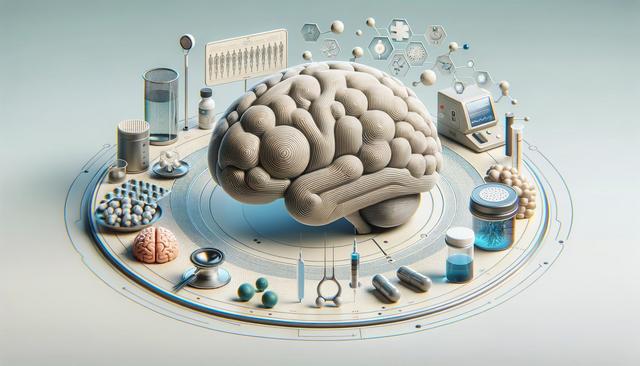Recognizing the Early Signs of Alzheimer’s
Early detection plays a vital role in managing Alzheimer’s disease effectively. Symptoms often develop subtly, making it difficult for individuals and families to recognize the condition in its initial stages. In the Netherlands, increased awareness has led to the availability of resources such as the Test Voor Alzheimer – Vroege Tekenen Van Alzheimer Nl 2025 to help identify early cognitive changes. Common early indicators include memory lapses, difficulty in solving problems, and confusion with time or place. These signs may differ slightly from person to person, but understanding what to look for can guide families toward timely evaluation and support.
In cities across the Netherlands, healthcare providers are emphasizing the importance of detecting Alzheimer Vroege Symptomen. These might include:
- Misplacing items and struggling to retrace steps
- Challenges in planning or organizing tasks
- Withdrawal from social or work activities
- Changes in mood or personality
By recognizing these symptoms early, individuals can undergo a Beginnende Dementie Test, which can be instrumental in planning future care and management strategies.
The Diagnostic Journey and Tools Available
Once early symptoms are recognized, the next step is confirming the diagnosis. The diagnostic process typically involves a combination of physical exams, neurological assessments, and cognitive testing. In the Netherlands, tools like the Beginnende Dementie Test and structured evaluations offered through regional health centers provide accessible ways to begin this journey. These tests are designed to assess memory, thinking abilities, and other cognitive functions that might be impacted by Alzheimer’s.
Medical professionals may also use imaging techniques such as MRI or CT scans to rule out other causes of cognitive decline. Blood tests and other laboratory assessments might be necessary to evaluate overall health and identify potential contributing factors. Each of these elements contributes to building a complete picture, making an accurate diagnosis more likely and supporting the development of a personalized care plan.
Establishing a Care Path After Diagnosis
After receiving a diagnosis, establishing an individualized care path is critical. This roadmap guides patients and caregivers through the various stages of Alzheimer’s, outlining available support services, treatment options, and goals for maintaining quality of life. In cities throughout the Netherlands, coordinated care teams work with patients and families to develop these plans, which often include:
- Regular check-ins with neurologists or geriatric specialists
- Engagement with memory clinics and community programs
- Psychological support for coping with emotional challenges
- Home care services to assist with daily tasks
Understanding the care path helps reduce uncertainty and ensures that families are prepared as the condition evolves. Having access to educational resources and support groups also empowers caregivers and patients alike.
Advancements in Treatment Options
While there is currently no cure for Alzheimer’s, ongoing research continues to improve available treatment options. Medication is often prescribed to help manage cognitive symptoms or delay progression. Some therapies aim to regulate neurotransmitters, while others focus on supporting behavioral health. In the Netherlands, healthcare providers stay informed about emerging treatments, which may become more widely available as research progresses through 2025.
Non-pharmacological interventions are also gaining attention as effective complementary approaches. These may include:
- Cognitive stimulation therapy
- Physical activity and rehabilitation programs
- Occupational therapy to enhance daily functioning
- Dietary and lifestyle modifications
Each treatment plan is tailored to individual needs, and regular evaluations ensure that the chosen approach continues to align with the patient’s condition and goals. The availability of tools like the Test Voor Alzheimer – Vroege Tekenen Van Alzheimer Nl 2025 supports earlier intervention, which may positively influence treatment outcomes.
Supporting Caregivers and Families
Alzheimer’s affects not only those diagnosed but also their families and caregivers. Navigating this journey can be emotionally and physically challenging, especially without adequate support. Many cities in the Netherlands offer structured caregiver assistance programs, respite care services, and educational workshops to help families cope with responsibilities and stress.
Key areas of support for caregivers include:
- Access to counseling and mental health resources
- Guidance on legal and financial planning
- Training in caregiving techniques and communication skills
- Community networks and peer support groups
Understanding the care path for Alzheimer’s involves building a strong support network and staying informed about available resources. Engaging in early testing, such as the Beginnende Dementie Test, and recognizing Alzheimer Vroege Symptomen can make a significant difference in how families experience and manage the condition.
Conclusion: Moving Forward with Informed Choices
Alzheimer’s disease presents a complex set of challenges, but with early detection and a clearly defined care path, individuals and families can navigate this journey more confidently. In the Netherlands, tools like the Test Voor Alzheimer – Vroege Tekenen Van Alzheimer Nl 2025 and resources available in cities across the country provide essential support from the first signs of Alzheimer Vroege Symptomen through advanced care. By staying informed, accessing the right diagnostic tools such as the Beginnende Dementie Test, and engaging with healthcare professionals, families can take proactive steps toward preserving quality of life and preparing for the future with clarity and compassion.




Leave a Reply